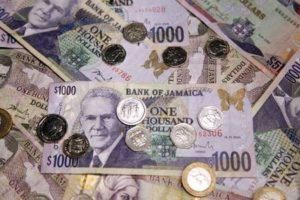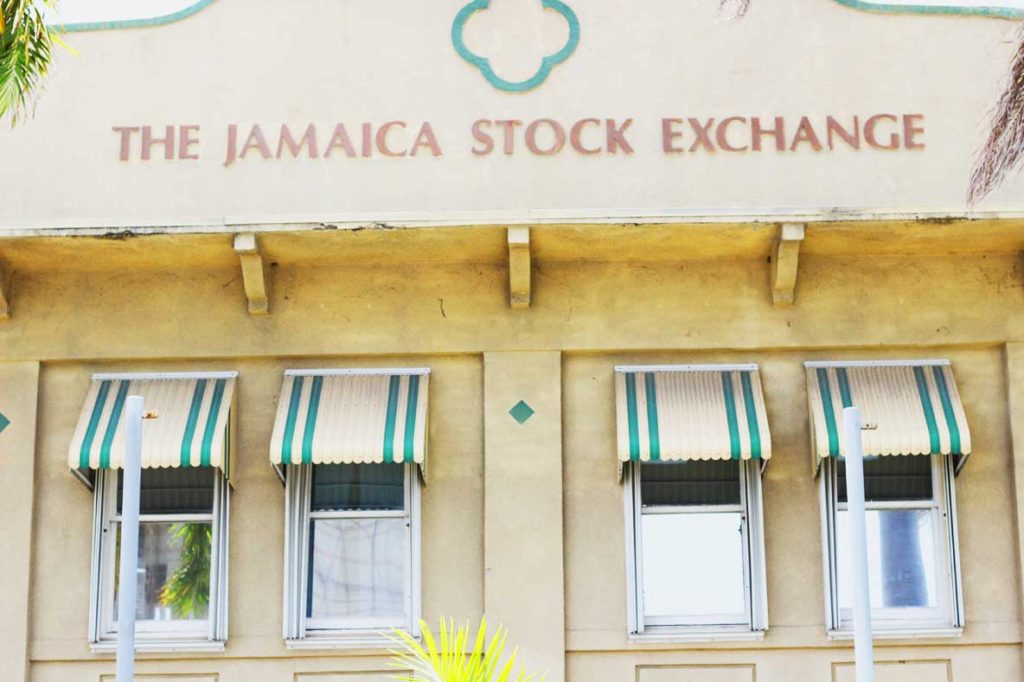If the influential media financial analyst Bloomberg is to be believed, Jamaica now ranks as the #1 performing stock exchange in the world! No its not a joke or fake news. Bloomberg says that Jamaica’s stock rally of the mind boggling 233% over the last five years IS the world’s biggest. This year alone, eight stocks have advanced by more than 100%, 20 stocks by more than 50% and the country’s benchmark index in dollar terms is the most among more than 90 equities tracked by Bloomberg.
What accounts for this phenomenal performance by a country whose national debt dwarfs its annual GDP and which has in recent years been in a borrowing relationship with the International Monetary Fund (IMF)? The Bloomberg report attributes this investor growth primarily to the fact that the government has adopted a deliberate policy of not borrowing from the local market which was in past years seen as a safe home for excess money held by the banking and financial sector. In the absence of this safe haven of government bonds, investors have been forced to place their liquid cash into stocks and bonds. In the words of one broker “ The stock market is the only repository for liquidity.”
 Local analysts point to additional factors, including low inflation, low interest rates, a falling debt to GDP ratio and lower than usual unemployment among a host of other positive macroeconomic trends. Bloomberg also points to the Jamaica government’s target of 5% economic growth by 2020, as billions of Chinese investment helps it to upgrade highways, ports and general logistics.
Local analysts point to additional factors, including low inflation, low interest rates, a falling debt to GDP ratio and lower than usual unemployment among a host of other positive macroeconomic trends. Bloomberg also points to the Jamaica government’s target of 5% economic growth by 2020, as billions of Chinese investment helps it to upgrade highways, ports and general logistics.
University of the West Indies economics lecturer, Dr Andre Haughton points to a more telling underlying factor driving investment in stocks and bonds and the accompanying high yields in the market. Dr Haughton argues that in more mature economies, many listed companies are so well established and have grown so big that they are close to what he describes as their ‘frontier’, thus reducing their scope for growth and consequently the rate of stock appreciation. By contrast newly emerging companies in Jamaica are far from their ‘frontier’ and therefore have more scope for growth and expansion and increases the amount by which their equity can appreciate in value. Since they have more room to grow, there is more scope to increase long-run profits and rate of returns in the form of dividends. (Haugton Gleaner October 17, 2018).

Profile of the Jamaica Stock Market
The Jamaica Stock Exchange (JSE) operates a multi-tiered stock market on which companies can list on the following:
- Junior Market
- Main Market
- Bond Market
- US Denominated Market
Junior Market
There are currently 44 companies listed on the Junior Market which allows investors to put capital into small and medium-sized companies whose stocks are listed on the stock exchange. The basic requirement for listing is by an Initial Public Offering (IPO) for not less than J$50 million and not more than J$500 million. The company must have a minimum of 25 shareholders holding not less than 20% of the issued capital. Listing on the Junior Market is particularly attractive because of the tax benefits to be gained in the first ten years as a listed company:
- full income tax relief for the first five years
- 50% relief for the second five years
Main Market
The Main Market comprises both ordinary and preference shares. It differs from the Junior Market in that its issued share and loan capital must be J$200,000 or more and the company must have an issued capital of not less than J$100,000. For ordinary shares, the issued nominal value must be J$250,000 or more. A company listed on the Main Market must have a minimum of 100 shareholders holding not less than 20% of issued ordinary capital. There are currently 52 companies listed on the Main Market.
US Dollar Equities Market
This allows companies to list their shares in US dollars and also allows for trading and settlement to take place in US dollars. The market is governed by the rules of the Main Market of the Exchange and trading operates according to the trading rules for all securities listed on the JSE.
Bond
The Bond market is a facility where investors buy and sell debt securities either directly from the borrower at issue or afterwards from other investors. It is similar in operation to the equities market where companies interested in listing their bonds are required to follow the requirements of the Main Market.
The Index
The performance of all companies listed on the JSE Main and Junior Markets is tracked by the JSE combined index. Tracking the performance of both markets by one index allows investors, analysts and researchers to see the performance of the overall market at a glance. The combined index provides a daily indicator of the overall performance of the market and its movements.
For more information on the rules and operations of the Jamaica Stock Exchange visit the JSE website at


